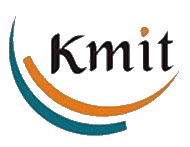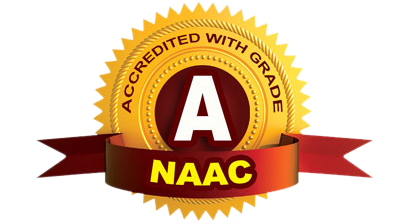About H&S
The Department of Humnities & Science at Keshav Memorial Institute of Technology was established in the year 2007. The current intake is 720, 420 in CSE, 120 in CSM , 120 in IT and 60 in CSD. The department has highly qualified and experienced faculty. The department of H&S, focuses on laying sound foundations through basic sciences and language skills which act as the fulcrum of all advanced learning activities of students of technology..
Vision of the Department
Producing quality graduates trained in the latest software technologies and related tools and striving to make India a world leader in software products and services.
Mission of the Department
Mission of the Department: To create a faculty pool which has a deep understanding and passion for algorithmic thought process.
-
To impart skills beyond university prescribed to transform students into a well-rounded Computer science professional.
To inculcate an ability in students to pursue Information technology education throughout their lifetime by use of multimodal learning platform including e-learning, blended learning, remote testing and skilling.
Exposure to different domains, paradigms and exposure to the financial and commercial underpinning of the modern business environment through the entrepreneur development cell.
To encourage collaboration with various organizations of repute for research, consultancy and industrial interactions.
To create socially conscious and emotionally mature individuals with awareness on India’s challenges, opportunities, their role and responsibility as engineers towards achieving the goal of job and wealth creation.
Programme Outcomes (POs)
Engineering Graduates of will be able to:
Engineering Knowledge: Apply the knowledge of mathematics, science, engineering fundamentals, and an engineering specialization to the solution of complex engineering problems.
Problem Analysis:Identify, formulate, review research literature, and analyze complex engineering problems reaching substantiated conclusions using first principles of mathematics, natural sciences, and engineering sciences.
Design/Development of solutions: Design solutions for complex engineering problems and design system components or processes that meet the specified needs with appropriate consideration for the public health and safety, and the cultural, societal, and environmental considerations.
Conduct Investigations of Complex problems: Use research-based knowledge and research methods including design of experiments, analysis and interpretation of data, and synthesis of the information to provide valid conclusions.
Modern Tool Usage: Create, select, and apply appropriate techniques, resources, and modern engineering and IT tools including prediction and modelling to complex engineering activities with an understanding of the limitations.
The Engineer and Society:Apply reasoning informed by the contextual knowledge to assess societal, health, safety, legal and cultural issues and the consequent responsibilities relevant to the professional engineering practice.
Environment and Sustainability:Understand the impact of the professional engineering solutions in societal and environmental contexts, and demonstrate the knowledge of, and need for sustainable development.
Ethics: Apply ethical principles and commit to professional ethics and responsibilities and norms of the engineering practice.
Individual and Team Work: Function effectively as an individual, and as a member or leader in diverse teams, and in multidisciplinary settings.
Communication: Communicate effectively on complex engineering activities with the engineering community and with society at large, such as, being able to comprehend and write effective reports and design documentation, make effective presentations, and give and receive clear instructions.
Project Management and Finance: Demonstrate knowledge and understanding of the engineering and management principles and apply these to one’s own work, as a member and leader in a team, to manage projects and in multidisciplinary environments.
Life-Long Learning: Recognize the need for, and have the preparation and ability to engage in independent and life-long learning in the broadest context of technological change.
Program Specific Outcome's (PSO's)
-
An ability to analyze the common business functions to design and develop appropriate Computer Science solutions for social upliftments.
Shall have expertise on the evolving technologies like Mobile Apps, CRM, ERP, Big Data, etc.






